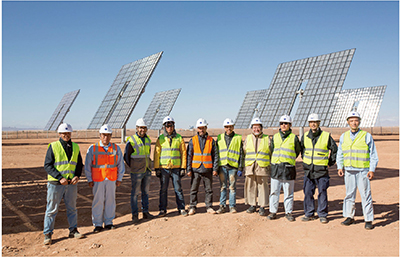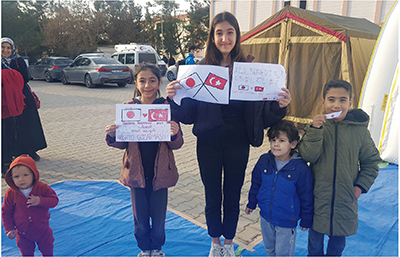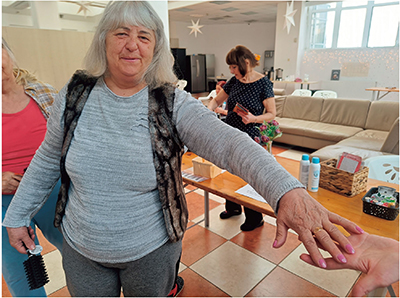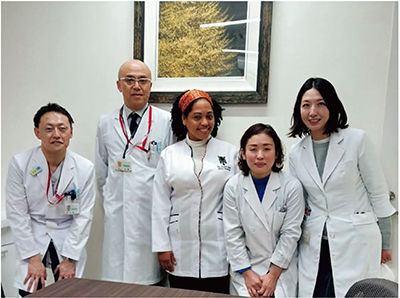Introduction: Significance of Japan’s International Cooperation
Japan has achieved reconstruction and economic growth after the war with assistance from developed countries and international organizations at that time. Since then, it has provided various support to a total of 190 countries and regions. In 2022, Japan’s total Official Development Assistance (ODA) was ranked third, following the United States and Germany, which demonstrates that Japan plays an important role as a responsible country in the international community.
Currently, the world is facing compound crises, including Russia’s aggression against Ukraine, the recent situation in the Middle East, and global issues such as climate change and infectious diseases. A crisis that occurs somewhere in the world is not necessarily “someone else’s problem,” and it could also have a significant impact on Japan. Japan will play its role as a responsible major power in the international community in addressing these challenges that a single country alone cannot resolve, and this will contribute to Japan’s peace and prosperity. In addition, given that the country imports much of its energy and food and many of its companies are engaged in overseas economic activities, ODA, which aims to stabilize the regions in the world and respond to global challenges, constitutes an essential contribution to supporting these activities.
Building on that idea, in the new Development Cooperation Charter, approved by the Cabinet in June 2023, Japan sets out the following objectives of development cooperation: (1) to work together with developing countries to address their development challenges and global issues common to all humankind based on equal partnerships, and to contribute even more actively to the creation of a peaceful, stable, and prosperous international community under a free and open international order based on the rule of law; (2) at the same time, while developing a favorable international environment for Japan and the world and preserving and strengthening foreign relations based on trust, to contribute to the pursuit of Japan’s national interests, such as the maintenance of peace and security for Japan and its people and the achievement of further prosperity through economic growth.
Moreover, in the new Development Cooperation Charter, Japan proposed strengthening the Co-creation for common agenda initiative. Under this initiative, Japan will proactively propose appealing cooperation menus that leverage its strengths in development cooperation, centered around ODA, in the areas that should be strategically addressed from a foreign policy perspective. Japan will formulate projects through dialogue and collaboration with the partner countries, addressing challenges of both Japan and partner countries while also contributing to Japan’s economic growth.
Japan’s development cooperation, which will mark its 70th anniversary in 2024, has been highly appreciated by local people in partner countries. It has greatly contributed to building amicable bilateral relations with developing countries and to enhancing their trust in Japan in the international arena. As an expression of their appreciation to and their confidence in Japan, some developing countries have adopted the images of cooperation with Japan in the design of their own banknotes and postage stamps. Also, at the time of disasters, including the Noto Peninsula Earthquake and the Great East Japan Earthquake, Japan received many messages of sympathy and support from countries around the world, including developing countries. Moreover, Japan has received tremendous support from countries around the world, including developing countries, at elections in international organizations, as evidenced by the fact that Japan has been elected as a non-permanent member of the UN Security Council 12 times, the highest number among all the UN Member States. These are the fruits of diplomatic efforts, including the strategic use of ODA. Also, they can be said to demonstrate the high level of trust and expectation that the international community has toward Japan. In an age of competition among nations, where uncertainty is increasing due to changes in the balance of power, it becomes even more important to strengthen relationships with countries, including developing countries, in order to uphold the international order based on the rule of law.
As globalization continues, an increasing number of Japanese companies are expanding their operations overseas. However, it is also true that there are challenges to business development in developing countries, such as underdeveloped infrastructure, lack of technical personnel, and opaque tax and legal systems. ODA has been utilized to address these challenges, conduct surveys and verification for business start-ups, and promote the use of Japanese technology, and it will continue to support the business development of Japanese companies in developing countries.
As the international community becomes increasingly interdependent, global issues are becoming more serious and complex beyond the capacity of any one country to solve. To ensure that the solving of these challenges helps maintain peace, security, and prosperity in the country, Japan shall continue to utilize ODA in an appropriate and transparent manner, and engage in more strategic and effective development cooperation in partnership with various stakeholders around the world.

Commemorative stamps in Ghana designed to honor the Noguchi Memorial Institute for Medical Research. Through its support for the institute, Japan contributes to the development of human resources in the field of medical research in the country.

Demonstration testing of a solar power generation system in Morocco through the use of ODA. It determined the superiority of the Concentrator Photovoltaic System that Sumitomo Electric Industries, Ltd. developed, leading to a direct contract with the Government of Morocco for a larger-scale demonstration project.

Children holding up messages of gratitude to the Japan Disaster Relief (JDR) Medical Team dispatched to Türkiye, following the massive earthquake that occurred in the southeastern part of Türkiye in February 2023 (Photo: JICA)

Romania
Ms. Valentina Shevchenko, shelter resident (Photo: Good Neighbors Japan)
“I fled alone from Nikopol, which is close to the Zaporizhzhya Nuclear Power Plant in Ukraine. I am worried about the impact of the collapse of the Kakhovka Hydroelectric Power Plant dam in Kherson Oblast, and I am also worried about my sister-in-law, who remains in an area occupied by the Russian forces. Nonetheless, the people in Romania have welcomed me warmly. I can use the shower at the shelter and do my laundry as well. So I feel relieved. I am also glad that I can celebrate New Years, Christmas, and such other occasions.” (The project managed by Good Neighbors Japan (GNJP). See “Japan’s Efforts in Ukraine and Its Neighboring Countries” for details)

Dominican Republic
Dr. Yankel Sena, JICA former-training participant (center)
“I studied at the Faculty of Medicine, Oita University, as a trainee of the JICA Development Studies Program and completed my doctoral program. Taking to heart the words of my mentor at the university ‘Study hard and make use of what you learned to benefit everyone,’ I would like to take back to my country the Japanese cutting-edge knowledge I have acquired in the field of cancer treatment.”

